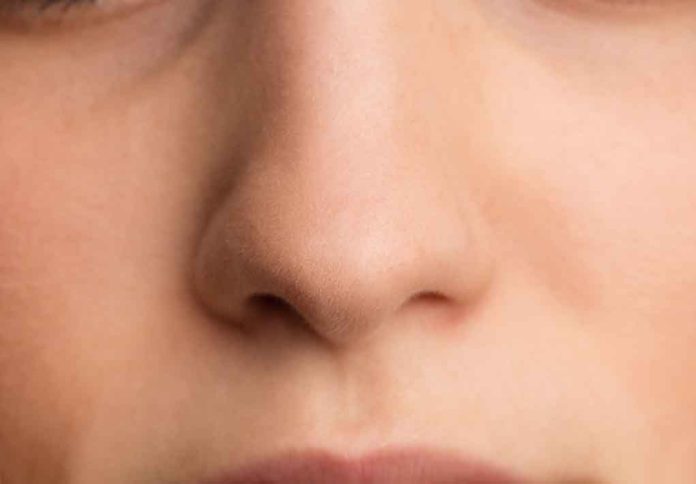
Could a harmless habit like nose-picking be contributing to Alzheimer’s disease?
At a Glance
- Alzheimer’s is the most common form of dementia.
- Recent studies suggest nose-picking introduces harmful bacteria to the brain.
- Such bacteria may trigger inflammation and the formation of amyloid beta plaques.
- Researchers call for improved hygiene to potentially reduce Alzheimer’s risks.
New Research Connects Nose-Picking with Alzheimer’s Risk
A recent study has identified a potential connection between the seemingly innocuous act of nose-picking and the development of Alzheimer’s disease. Published in Nature Scientific Reports, this research links the habit to introducing pathogenic bacteria, specifically Chlamydia pneumoniae, into the brain. The introduction of these bacteria could facilitate the formation of amyloid beta plaques, a hallmark of Alzheimer’s disease.
This association highlights the danger of neuroinflammation, which is increasingly recognized as a significant contributor to Alzheimer’s pathogenesis. The study conducted at Griffith University in Queensland, Australia, used mice to demonstrate how damaging the nasal cavity can allow bacteria to enter the brain through the olfactory nerve, a direct pathway bypassing the blood-brain barrier.
NOSE-PICKING LINKED TO ALZHEIMER'S DISEASE
Besides being gross, nose-picking could increase the risk of Alzheimer's.
Damage to nasal tissue allows Chlamydia pneumoniae bacteria to travel to the brain via the olfactory nerve.
In mice, this led to amyloid-beta plaque buildup—a… pic.twitter.com/30U3iAfFPy
— Mario Nawfal (@MarioNawfal) September 4, 2024
Implications for Pathogen Entry into the Brain
Alzheimer’s symptoms, such as memory loss and language problems, are often linked to the accumulation of amyloid beta proteins. This study furthers our understanding of how pathogens, including Chlamydia pneumoniae, may contribute to these plaque formations. The bacteria research suggests can colonize the nasal microbiome and use the olfactory system to travel to the brain, causing inflammation.
Prof. James St John, head of the Clem Jones Centre for Neurobiology and Stem Cell Research at Griffith University, stated, “Other studies have shown that Chlamydia pneumoniae is present in Alzheimer’s plaques in humans, but it is not known how the bacteria get there, and whether they cause AD pathologies or are just associated with it.”
These findings underscore the potential risks of day-to-day habits and have prompted healthcare professionals to rethink the importance of nose hygiene. The researchers advise against nose-picking and plucking nasal hair as preventive measures to reduce bacterial entry into the brain.
Further Research and Public Health Recommendations
Future studies aim to explore more about how pathogens can contribute to Alzheimer’s disease. Researchers are extending their investigations to human studies, including an approved study in Queensland to examine bacteria in the noses of people with early-stage late-onset Alzheimer’s. The Alzheimer’s Association is also funding further research to delve deeper into understanding the link between Chlamydia pneumoniae and brain changes related to Alzheimer’s.
Prof. St John noted that C. pneumoniae is not the only microorganism potentially linked to Alzheimer’s, stating: “There are potentially many microorganisms that may contribute to the onset of AD, including the herpes simplex virus.”
Given these findings, adopting good hygiene practices becomes even more critical. Researchers suggest that maintaining nose health and avoiding potentially harmful behaviors could serve as simple yet effective measures to potentially mitigate the risk of Alzheimer’s disease in the future.
Sources
- https://www.amjmedsci.com/article/S0002-9629(24)01329-6/fulltext
- https://www.medicalnewstoday.com/articles/picking-your-nose-may-increase-alzheimers-dementia-risk
- https://www.ncbi.nlm.nih.gov/pmc/articles/PMC10669446/
- https://www.healthline.com/health/alzheimers/nose-picking-alzheimers
- https://www.independent.co.uk/news/health/alzheimers-disease-causes-risk-picking-nose-b2607259.html
- https://www1.racgp.org.au/newsgp/clinical/does-nose-picking-lead-to-dementia
- https://www.sciencealert.com/mouse-study-suggests-surprising-link-between-nose-picking-and-alzheimers
- https://www.usatoday.com/story/news/health/2024/02/08/nose-picking-dementia-alzheimers-study-expert-explains/72511565007/
- https://www.wkyc.com/article/news/health/health-hub/picking-nose-alzheimers-disease-new-study-australia/95-27dffe09-93d5-4f58-8338-bd52a199fde1
- https://timesofindia.indiatimes.com/life-style/health-fitness/health-news/can-your-nosepicking-habit-lead-to-alzheimers-what-science-says/articleshow/107468529.cms










